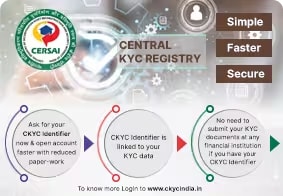Enjoy Zero Charges on All Commonly Used Savings Account Services
- About Us
- MD & CEO letter about the bank
- MD & CEO
- Our History
- Letter to Shareholders on the 1st Annual Report after Merger
- Letter to Shareholders on the 2nd Annual Report after Merger
- Letter to Shareholders on the 3rd Annual Report after Merger
- Letter to Shareholders on the 4th Annual Report after Merger
- Board of Directors
- Awards & Accolades
- News Room
- Investors
- Careers
- ESG
-
Login
Are you ready for an upgrade?
Login to the new experience with best features and services
- Accounts
-
Deposits
IDFC FIRST Bank Deposits
View all Deposits -
Loans
IDFC FIRST Bank Loans
View all Loans - Wealth & Insure
-
Payments
IDFC FIRST Bank Payments
View all Payments - Cards
- Rocket Current Account
-
Cash Management Services
IDFC FIRST Bank Cash Management Services
View all Cash Management Services - Supply Chain Finance
-
Corporate Lending
IDFC FIRST Bank Lending
View all -
Treasury
IDFC FIRST Bank Treasury
See more details - NBFC Financing
-
Login
Are you ready for an upgrade?
Login to the new experience with best features and services
-
Customer care hotlineCall 1800 10 888
- IDFC FIRST Bank Accounts
- Savings
Account - Corporate Salary
Account - Senior Citizens
Savings Account - First Power
Account - Current
Account - NRI Savings
Account - TASC Institutional
Account - Savings Account
Interest Calculator
- IDFC FIRST Bank Deposits
- Fixed
Deposit - Recurring
Deposit - NRI Fixed Deposit
- Safe Deposit Locker
- FD Calculator
- RD Calculator
- IDFC FIRST Bank Loans
- Personal Loan
- Consumer Durable
Loan - Home Loan
- Education Loan
- New Car Loan
- Pre-owned Car Loan
- Two Wheeler Loan
- Pre-owned Two
Wheeler Loan - Commercial Vehicle
Loan - Gold Loan
- Loan Against Property
- Easy Buy EMI card
- Personal Loan
EMI Calculator - Education Loan
EMI Calculator - Home Loan
EMI Calculator
- IDFC FIRST Bank Wealth & Insure
- FIRST Select
- FIRST Wealth
- FIRST Private
- Mutual Funds
- Sovereign Gold Bond
- Demat & Trading
Account - Term Insurance
- Life Insurance
- Health Insurance
- General Insurance
- IDFC FIRST Bank Payments
- FASTag
- Credit Card
Bill Payments - UPI
- Funds Transfer
- Retail Forex
- Pay Loan EMI
- IDFC FIRST Bank MSME Accounts
- Current Account
- Merchant Multiplier
Account - Startup Current
Account - Agri Multiplier
Account - TASC Institutional
Account - Dynamic Current
Account - Freedom World
Current Account - World business
Account
- IDFC FIRST Bank Business Loans
- Unsecured - Business Loan
- Unsecured - Professional Loan
- Secured - Loan Against Property
- Working Capital Loan
- Construction Equipment Loan
- IDFC FIRST Bank Business Solutions
- Payments
- Collections
- Tax Payments
- Doorstep Banking
- Point of Sale (POS)
- MD & CEO letter about the bank
- MD & CEO
- Our History
- Letter to Shareholders on the 1st Annual Report after Merger
- Letter to Shareholders on the 2nd Annual Report after Merger
- Letter to Shareholders on the 3rd Annual Report after Merger
- Letter to Shareholders on the 4th Annual Report after Merger
- Board of Directors
- Awards & Accolades
- News Room
-
As per amendment in the Income Tax Rules, PAN or Aadhaar are to be mandatorily quoted for cash deposit or withdrawal aggregating to Rupees twenty lakhs or more in a FY. Please update your PAN or Aadhaar. Kindly reach out to the Bank’s contact center on 1800 10 888 or visit the nearest IDFC FIRST Bank branch for further queries.
-
-
Heirs can inherit their parents’ debt, but only in certain situations. Here is how you can deal with them
Losing a loved one is painful. While money would be the last thing on your mind if you were in such a situation, you cannot ignore it either. It is critical to understand how the assets and obligations of the deceased will affect you and others in your family.
Although a person's debt is usually not passed on to their spouse or children, there may be instances where it could happen. You must be prepared for all eventualities and understand how debt inheritance works. Here is a detailed guide to debt inheritance and what you can do to deal with it.
Will I inherit my parents' debt after they pass away?
Debt inheritance from parents to their kids varies according to different situations. The outcome also depends on who the deceased owes money.
Many creditors may want to talk about the moral responsibility of the kids when they try to collect the loan amount, but it is not under the jurisdiction of the law. Let us see some legal situations, where you may inherit your parents’ debt.
READ MORE
1. Debt inheritance in home loans
A person may pass away without clearing their home loan. If this happens, the bank will reach out to the heir of the deceased to recover the loan. If there is only one heir, the bank will recover money from him/her, and if there is more than one heir, the bank may suggest joint loan repayment. With home loans, there is scope for negotiation, though. You can negotiate with the bank to come to an agreement that works for all parties.
While banks cannot pressurise children to repay their parents’ loan, they can take possession of the property and auction it to recover their losses. That said, not every bank does so. IDFC FIRST Bank, for instance, gives the heir every opportunity to negotiate and arrive at a mutually acceptable solution.
2. Debt inheritance in unsecured loans
If borrowers die before repaying their unsecured loan, the responsibility to do so falls on their heir. Banks are legally allowed to reach out to the heir if the borrower has passed away without paying the outstanding loan. If the heir cannot repay the loan, the interest will keep accumulating and the bank is within its rights to file a civil suit against the heir.
The court will ask the legal heir to repay the loan with the inheritance they may have received. Most people will try to settle the matter out of court, as going to court is costly.
There are some instances where you may inherit debt, but there are some where you wouldn’t.
Banks have a legal department to handle defaults and disputes regarding debt inheritance. They are experienced professionals who know how everything the law. Hence, it is always better to negotiate with the bank if you have debt inheritance.
Banks are frequently willing to grant legal heirs additional time to secure debt payback. If the amount is such that you cannot repay it, you can take a personal loan for debt consolidation. IDFC FIRST Bank offers personal loans for settling debt at reasonable interest rates. You can get a personal instant loan within minutes, provided you have a good credit history. You can select the tenure of your loan and avail other benefits as well. Download the IDFC FIRST Bank mobile banking app to get started.
Disclaimer
The contents of this article/infographic/picture/video are meant solely for information purposes. The contents are generic in nature and for informational purposes only. It is not a substitute for specific advice in your own circumstances. The information is subject to updation, completion, revision, verification and amendment and the same may change materially. The information is not intended for distribution or use by any person in any jurisdiction where such distribution or use would be contrary to law or regulation or would subject IDFC FIRST Bank or its affiliates to any licensing or registration requirements. IDFC FIRST Bank shall not be responsible for any direct/indirect loss or liability incurred by the reader for taking any financial decisions based on the contents and information mentioned. Please consult your financial advisor before making any financial decision.
The features, benefits and offers mentioned in the article are applicable as on the day of publication of this blog and is subject to change without notice. The contents herein are also subject to other product specific terms and conditions and any third party terms and conditions, as applicable. Please refer our website www.idfcfirstbank.com for latest updates.


 What's special about us
What's special about us




















